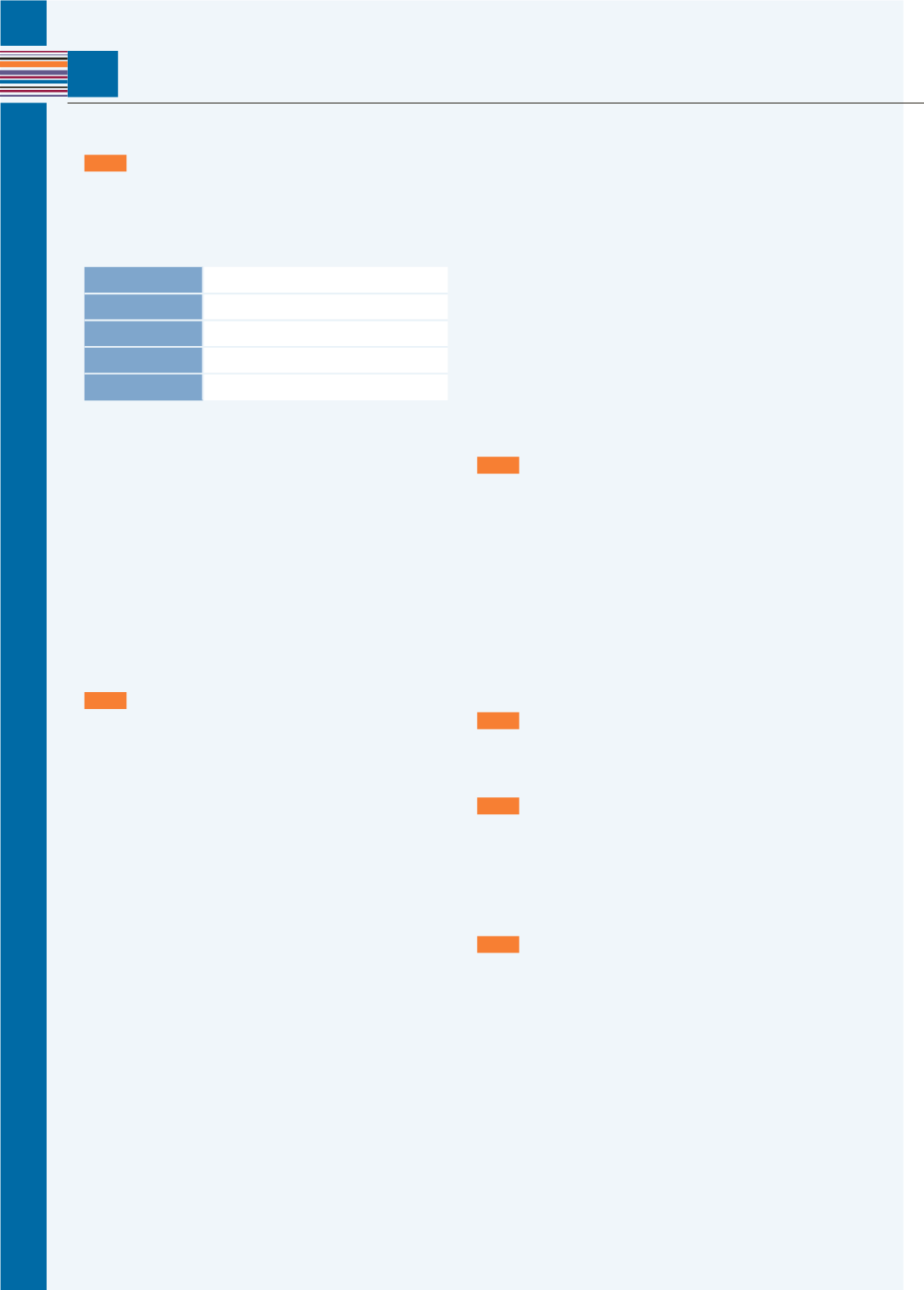
LANGUAGE REFERENCE
142
9
GRAMMAR
G1
THE PASSIVE
We form the passive with the verb
to be
+ the past
participle of the main verb.
The test
is carried
out.
Form the passive for each tense as follows:
If we include the person who does the action, we
introduce them with the preposition
by.
The test is carried out
by scientists
.
Use the passive when the person doing the action is
not important, not known or is obvious.
A strange message about an object in the sky
was left
on a police answering machine.
The space shuttle
will be flown
twice around the
moon.
We also use the passive when we want to start a
sentence with information that is known or has been
mentioned before.
Twenty scientists are currently on the team. By the
end of the year, they
will be joined
by 25 more.
G2
ARTICLES
Use articles in the following ways:
•
first and second mention
Use
a
/
an
when you mention a singular noun for
the first time.
Tokyo has
a
major problem with space.
An
alternative idea has been suggested.
Use
the
when we refer to something that has been
mentioned before.
(Tokyo has
a
major
problem
with space.) At last city
planners are trying to solve
the problem
.
Don’t use an article with general plural countable
nouns, and when we mention a plural noun for the
first time.
Scientists
still haven’t found a way to deter
meteorites.
Satellites
will be launched into space. (Scientists will
then use
the
satellites to look for alien life.)
• known things
Use
the
when there is only one of something.
The
Earth’s moon is a natural satellite.
Engineers are designing a train which will travel
under
the
city.
• set uses
Use
the
with the names of some countries.
the
United States
,
the
United Kingdom
,
the
Netherlands
Use
the
with the names of geographical features.
the
Baltic Sea
,
the
Pacific Ocean
,
the
Amazon
,
the
Alps
Use
the
with superlatives.
It’s
the
largest engineering project of its kind.
Use
a
/
an
when talking about a job someone does.
I’m
a
teacher.
She works as
a
lawyer.
Don’t use an article with the names of towns and
cities, and most countries.
Venice
,
Paris
,
Tokyo
,
Japan
,
China
KEY LANGUAGE
KL
DISCUSSING OPTIONS, MAKING DECISIONS
What about calling (it/them/that) … ?
There are other possibilities …
It sounds good to (me/us).
Well, one option would be to …
If (we/I/they) called it X, (people) would like that
name.
Mmm, nice idea.
Are we all agreed then?
Have we reached a decision?
I’ll recommend (that) to …
We’re all agreed.
VOCABULARY
V1
COLLOCATIONS
build a model/prototype, do (some) research,
do safety tests, find a solution, make a breakthrough,
meet deadlines, solve a problem, test a theory
V2
GLOBAL THREATS
asteroid, alien invasion, collide, collision, comet,
deflect, devastation, drought, earthquakes,
extinction, famine, genetic engineering, hazardous,
hurricanes, impact, infectious diseases, meteor,
meteorite, overpopulation, probe, superbugs, threat,
tsunamis, volcanoes, wipe out
V3
PRODUCTION
aircraft, aviation, flight test, limited number,
mass-produce, modify, modification, model,
prototype, simulation, test drive, wind tunnel
present simple
The Earth
is struck
.
past simple
Meteorites
were discovered
.
present perfect
The theory
hasn’t been agreed
on.
future
Mars
will be explored
.
modal
The rock
must be destroyed
.


